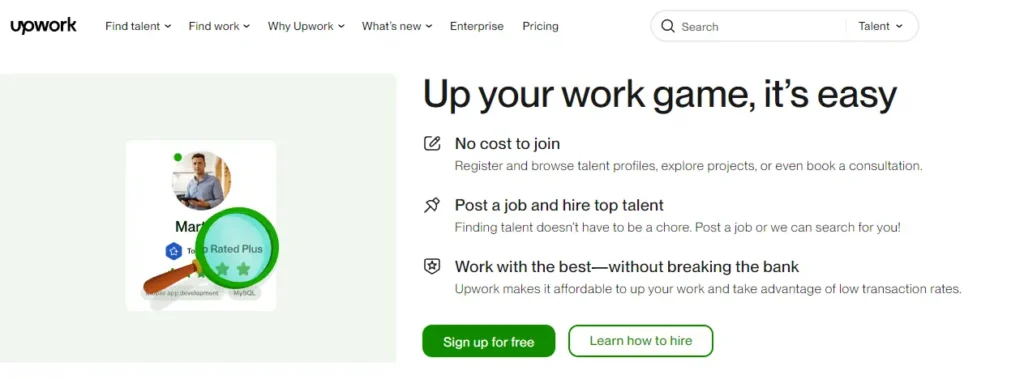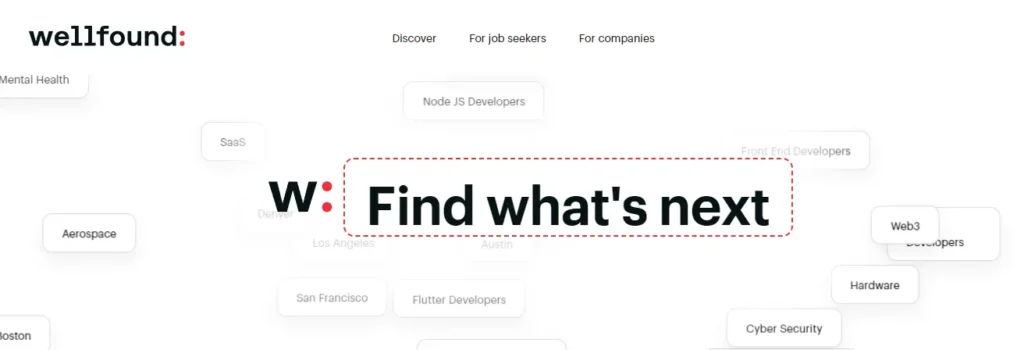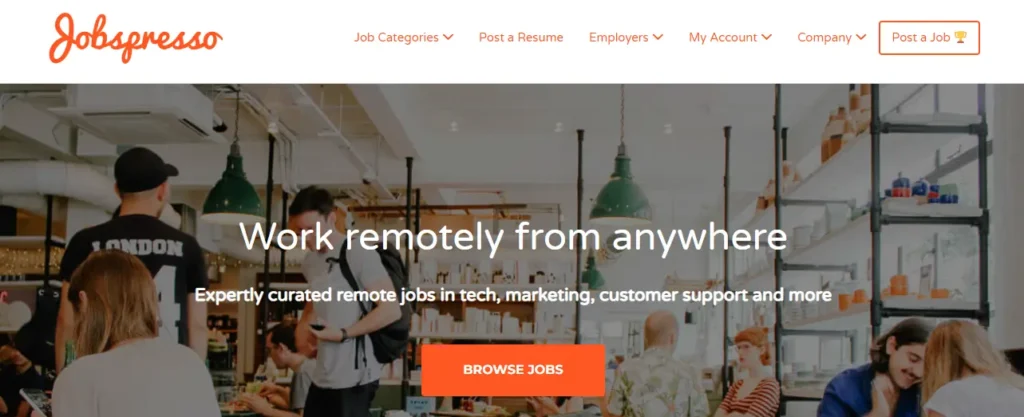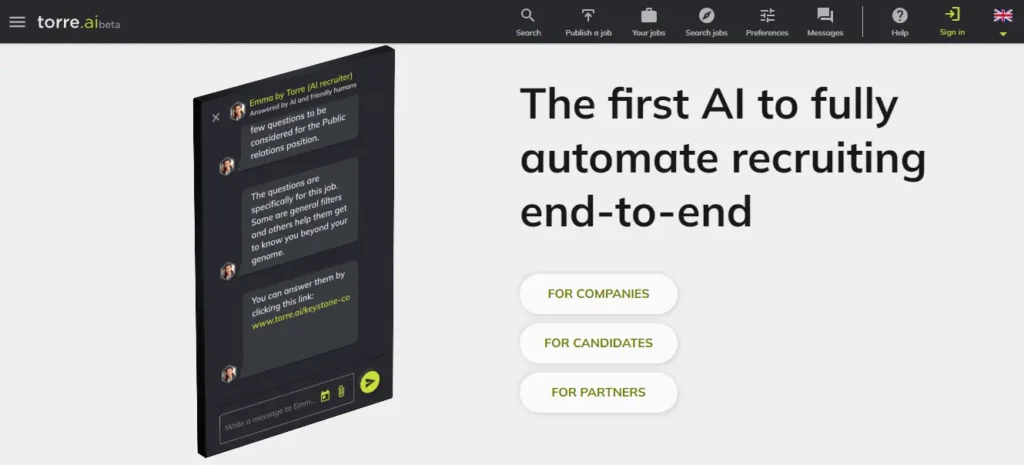Are you looking for a remote job and want to work remotely from anywhere in the world? Finding the right remote work opportunity can be a game-changer. The demand for remote jobs continues to rise, and so does the number of websites catering to remote job seekers. To help you out, we’ve picked the top 10 best websites for finding remote jobs. Each platform offers unique features, pros, and cons, tailored to different industries and preferences, ensuring you find the perfect remote position to suit your needs.
Top 10 Best Websites to Find Remote Jobs in 2025
1. FlexJobs
2. Remote.co
3. We Work Remotely
4. Upwork
5. LinkedIn
6. AngelList Talent (WellFound)
7. Remote OK
8. JustRemote
9. Jobspresso
10. Torre
1. FlexJobs
FlexJobs stands out as a meticulously curated platform, specializing in remote and flexible job listings across various sectors. Each posting undergoes a stringent vetting process, ensuring legitimacy and quality. Users can access a broad spectrum of opportunities, from entry-level positions to executive roles, all tailored for remote work.

Pros:
- Curated Listings: Offers a wide range of vetted remote and flexible job opportunities across various industries.
- Scam-Free: Ensures all job postings are legitimate, reducing the risk of encountering fraudulent listings.
- Additional Resources: Provides career coaching, resume reviews, and webinars to assist job seekers.
Cons:
- Subscription Fee: Requires a paid membership to access job listings and resources.
- Limited Free Access: Offers minimal features for non-paying users.
2. Remote.co
Dedicated exclusively to remote employment, Remote.co offers a comprehensive array of job listings, company profiles, and resources tailored for remote professionals. The platform serves as a hub for both job seekers and employers, fostering a community centered around the nuances of remote work.

Pros:
- Exclusive Focus: Dedicated entirely to remote work, offering job listings, company Q&As, and resources.
- Diverse Categories: Covers various fields, including customer service, design, and technical roles.
Cons:
- Smaller Job Pool: May have fewer listings compared to larger job boards.
- Less Frequent Updates: Job postings might not be updated as regularly as on other platforms.
3. We Work Remotely
As one of the largest remote work communities, We Work Remotely features job postings across categories such as programming, design, customer support, and more. The platform’s extensive reach and user-friendly interface make it a go-to resource for remote job seekers.

Pros:
- Large Community: Hosts a vast number of remote job listings across multiple categories.
- User-Friendly Interface: Simple design makes job searching straightforward.
Cons:
- Basic Features: Lacks advanced search filters and additional resources for job seekers.
- Limited Company Information: Provides minimal details about hiring companies.
4. Upwork
Upwork is a leading freelancing platform connecting professionals with clients seeking project-based work in fields like writing, design, and development. Its robust system facilitates seamless collaboration, contract management, and payment processing, making it a preferred choice for freelancers worldwide.

Pros:
- Extensive Freelance Marketplace: Connects freelancers with clients globally across various industries.
- Flexible Work Arrangements: Offers both short-term projects and long-term contracts.
Cons:
- Competitive Environment: High competition can drive down rates for freelancers.
- Service Fees: Charges a percentage of earnings as a service fee.
5. LinkedIn
Beyond its networking capabilities, LinkedIn offers a robust job search feature where users can filter for remote positions across various industries. The platform’s integration of professional profiles and job listings provides a holistic approach to job searching and recruitment.

Pros:
- Professional Networking: Combines job listings with networking opportunities.
- Advanced Filters: Allows filtering for remote positions and specific industries.
Cons:
- General Focus: Not exclusively tailored for remote jobs.
- Overwhelming Volume: High number of listings can make it challenging to find suitable remote roles.
6. AngelList Talent (WellFound)
Ideal for those interested in startups, AngelList Talent provides remote job listings with transparent salary information and company details. The platform connects job seekers with innovative companies, offering roles that often come with flexible work arrangements.

Pros:
- Startup Focus: Ideal for those seeking opportunities in startups and tech companies.
- Transparent Listings: Provides salary ranges and equity options upfront.
Cons:
- Niche Market: Primarily caters to startup roles, limiting options in other industries.
- Variable Stability: Startup positions may come with less job security.
7. Remote OK
Remote OK aggregates remote job listings from around the web, offering a comprehensive selection of opportunities updated daily. Its straightforward interface and extensive listings make it a valuable resource for those seeking remote work.

Pros:
- Aggregated Listings: Compiles remote jobs from various sources into one platform.
- Real-Time Updates: Frequently updates job postings.
Cons:
- Minimal Screening: Aggregated nature may include less-vetted job postings.
- Basic User Experience: Lacks advanced search functionalities
8. JustRemote
JustRemote offers a variety of remote job opportunities across industries, with a user-friendly search interface to help job seekers find roles that match their skills. The platform emphasizes transparency and ease of use, streamlining the job search process.

Pros:
- Global Opportunities: Features remote jobs from companies worldwide.
- Simple Interface: Easy-to-navigate platform with straightforward job listings.
Cons:
- Limited Free Access: Some features require a paid subscription.
- Smaller Database: Fewer job listings compared to larger platforms
9. Jobspresso
Jobspresso hand-picks and reviews remote job listings, ensuring high-quality opportunities in tech, marketing, customer support, and more. The platform’s commitment to quality over quantity sets it apart in the remote job market.

Pros:
- Hand-Picked Jobs: Curates high-quality remote job listings.
- Focus on Tech and Marketing: Specializes in tech, marketing, and customer support roles.
Cons:
- Infrequent Updates: Job postings may not be updated daily.
- Limited Categories: Focuses on specific industries, limiting diversity.
10. Torre
An AI-powered platform, Torre connects professionals with remote work opportunities worldwide, focusing on roles in software development, design, marketing, and more. Its advanced matching algorithms and comprehensive profiles facilitate efficient connections between job seekers and employers.

Pros:
- AI-Powered Matching: Utilizes artificial intelligence to match candidates with suitable roles.
- Comprehensive Profiles: Allows users to create detailed profiles showcasing skills and preferences.
Cons:
- Emerging Platform: As a newer platform, it may have a smaller user base and fewer job listings.
- Learning Curve: Advanced features may require time to navigate effectively.
Each of these platforms offers unique features catering to different aspects of remote job searching. Job seekers should consider their specific needs, industry focus, and desired features when selecting a platform to maximize their chances of securing a suitable remote position.
Learn More: Carrer Guidance
Business Development Executive Interview Questions and Answers
ServiceNow Interview Questions and Answers for Experienced
ServiceNow Interview Questions and Answers-Freshers
Hadoop Interview Questions and Answers- Basic to Advanced
JDBC Interview Questions and Answers- Basic to Advanced